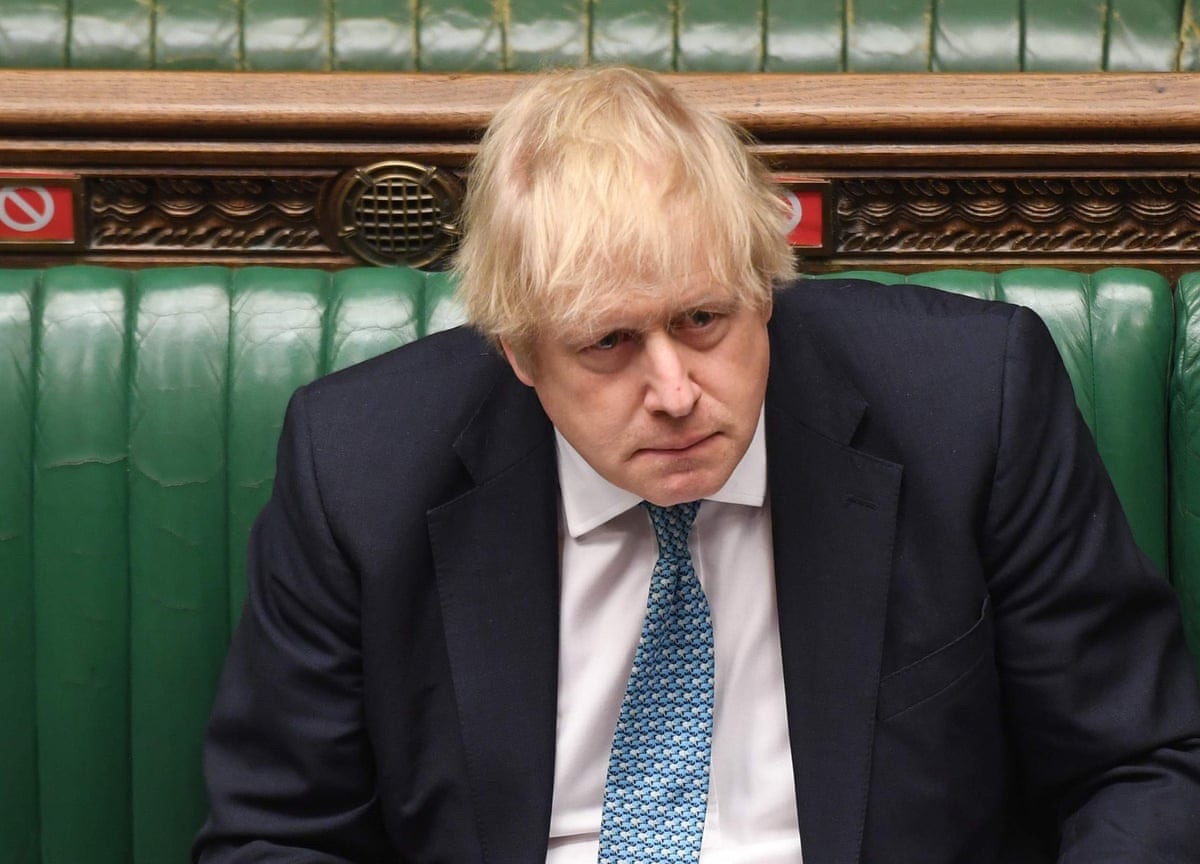
After one of the most bizarre days in British politics, Boris Johnson is still clinging to power in London despite no fewer than 42 resignations from his government, including a record 14 Ministers in one day.
Johnson is under huge pressure to resign in the wake of a fresh scandal over his lies in regard to the promotion of a Minister accused of serial sexual assault.
By Wednesday evening, even arch Johnsonite, British Direct Ruler Brandon Lewis, was widely reported to have handed in his own resignation, but this was subsequently denied.
Johnson’s departure could help resolve a dangerous deadlock between Britain and the European Union over the Brexit protocol, Britain’s chief negotiator in the Good Friday Agreement talks has predicted.
Johnson’s “vandalism” of hard-won peace gains in the North just to cling onto power could otherwise provoke violence, Jonathon Powell warned.
The protocol, which prevents a remilitarised border in Ireland, is set to be torn up by legislation currently passing through the British Parliament. It is one of a raft of pro-unionist legislation introduced in recent weeks by Johnson and his cabal in a failed bid to shore up collapsing support among his party backbenchers.
“I know it sounds rather hopeless to say wait for a new prime minister, but since I’m hoping and believing that is going to happen quite soon, I would be preparing for negotiations post-Boris Johnson,” he told the Committee on the implementation of the Good Friday Agreement of the Dublin parliament earlier this week.
If Johnson remains in power, there will be “a real problem” and there is “no magic answer as to what we can do apart from pray, and that is not necessarily a political solution.”
But on Wednesday night, Johnson looked to be on his way out of Downing Street following the sudden resignation of two senior Ministers, Rishi Sunak and Sajiv Javid. In an apparent attempt at a fightback, Johnson subsequently fired another senior Minister, Michael Gove, who had earlier called on him to resign, reportedly calling him as “a snake”.
Amid the chaos in London, Sinn Féin vice-president Michelle O’Neill said Johnson was “bad for the people of the north”.
“He has failed workers and their families struggling with the cost of living,” she said.
She added: “He has failed victims of the conflict and their families.
“He delivered the hardest Brexit possible against the wishes of the majority of our people, our political representatives and our businesses and he has torn up international agreements and shown contempt for international law.
“He has attacked the Good Friday Agreement, backing the boycott of our democratic institutions to placate Tory Brexiteers and the DUP in a desperate attempt to hold on to power.
“The current Tory chaos at Westminster is a daily reminder of the complete ineptitude and arrogance of this British government.”
Jonathan Powell said the British prime minister’s threat to unilaterally break the Brexit agreement amid a deepening row with the EU had been driven by Conservative Party politics and “not the best interests” of the north of Ireland.
He was accused of having pandered to “Brexit radicals” in the European Research Group, a rump of hard right-wing MPs within the Tories, just to “shore up his leadership.”
The main casualty would be the peace process, said the former chief of staff to ex-prime minister Tony Blair.
By threatening to rip up the Irish Protocol - part of the Brexit divorce deal to avoid a hard border in Ireland - Johnson was manipulating unionist concerns by attempting “to redefine consent and cross-community consensus” as laid out in the Good Friday Agreement, according to Mr Powell.
“This is quite dangerous, to try to bleed these things into something different to what they meant in the Good Friday Agreement.. it could undermine the whole basis of the Good Friday Agreement.”
The approach was underpinned by a majority of Johnson’s supporters, who when asked in an opinion poll at the time of his last leadership race, said they were “prepared to lose Scotland and Northern Ireland if they get Brexit.”
He added: “If you think of the mindset of the people who brought Boris Johnson to the job of prime minister, for those the future of the union is not that important when compared to Brexit. That is an important political marker to what might happen to the union in future.”
![[Irish Republican News]](https://republican-news.org/graphics/title_gifs/rn.gif)
![[Irish Republican News]](https://republican-news.org/graphics/title_gifs/harp.gif)

